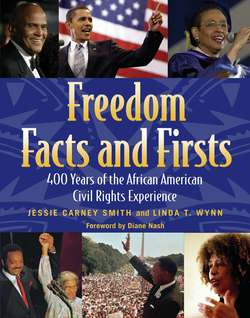Читать книгу Freedom Facts and Firsts - Jessie Carney Smith - Страница 107
На сайте Литреса книга снята с продажи.
Tent City (1960–1962)
ОглавлениеIn 1959 African Americans in Fayette and Haywood Counties in Tennessee fought for the right to vote. The concern for voting emerged as a byproduct of the absence of black jurors for the trial of Burton Dodson, an African American farmer in his seventies who was tried for the 1941 murder of a white man. By denying African Americans their rights to participate in the electoral process, whites eliminated them from the pool of potential jurors. To combat this injustice, African Americans in the two counties organized the Original Fayette County Civic and Welfare League and the Haywood County Civic and Welfare League. Both leagues launched voter registration drives, and a number of blacks registered to vote during June and July. However, when the Democrats held their August primary, black registered voters were not allowed to cast their ballots. League members initiated the first legal action against a party primary under the Civil Rights Act of 1957 when they filed suit against the local Democratic Party.
Whites in the west Tennessee counties used their economic advantage to penalize African Americans. Many blacks lost their employment, credit, and insurance policies. Whites circulated a list of those African Americans who had attempted to vote, and then white merchants refused to sell them goods and services; some white physicians even withheld medical care. In the winter of 1960, white property owners evicted hundreds of black tenant farmers from their lands. African American leaders did not surrender to the pressure tactics. With the support of black property owners, they formed makeshift communities known as “Tent Cities.” Day-today existence proved strenuous for the “Tent City” residents. Hate groups such as the White Citizens Council and the Ku Klux Klan terrorized the makeshift city by firing shots into the tents. The U.S. Justice Department filed several lawsuits against landowners, merchants, and one financial institution for violating civil rights laws. On July 26, 1962, as noted in the July 27, 1962, Memphis Commercial Appeal, “landowners were enjoined from engaging in any acts … for the purpose of interfering with the right to vote and to vote for candidates in public office.”
Linda T. Wynn
